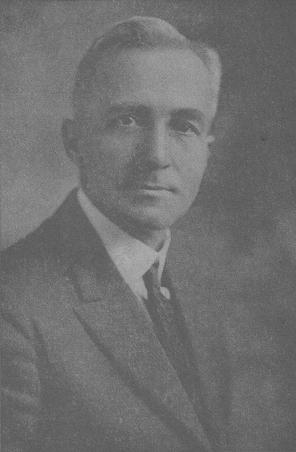
Joseph Stump
(1866-1935)
The Twofold Effect and Activity of Faith
JOSEPH STUMP
(From The Christian Faith [New York: The Macmillan Company, 1932], pp. 214-16.)
Twofold Effect of Faith. The effect of faith is twofold, namely, justification and sanctification. Through faith the believer is justified before God; and through faith he also becomes gradually and increasingly sanctified in heart and life. Justification and sanctification must not be confused. Justification means that through faith the merit and righteousness of Christ are imputed to the believer, and that he is counted righteous for Christ’s sake. Sanctification, on the other hand, means that faith is active as a vital principle in the heart and life of the believer, and that because of its presence the believer becomes more and more holy. Justification is instantaneous and complete; the believer is at once and fully forgiven all his sins. But sanctification is gradual and incomplete in this world, and will become perfect only in the world to come.
Twofold Power or Activity of Faith. The twofold effect of faith corresponds to a twofold activity of faith. For saving faith is at once a receptive and an operative power. As a receptive power it receives grace and forgiveness from God. As an operative power it worketh by love. Every faith that is true and real has this twofold activity. It has, so to say, two hands, with one of which it reaches out and accepts God’s grace, and with the other of which it reaches out in the performance of works of love. Being a living active thing, it is at once a saving and a renewing power. By its receptive power it results in the justification of the sinner; by its operative power it results in his sanctification. For, being not a mere intellectual assent to certain truths, but a new attitude of heart consisting of firm trust in Christ as the Savior, faith implies that a great moral change or transformation has taken place in man. He has become a new creature in Christ. He not only stands in a new outward relation to God through justification, but his heart has undergone such a change that he now loves God and seeks to do His will. Faith is an appreciation of God’s love to us. Where this appreciation exists we shall inevitably love Him in return. Hence faith produces love, and works by it. The very existence of faith in the heart implies a new and right disposition toward God and an honest endeavor to do His will. A so-called faith which does not result in a new life of love to God and man is a dead faith, and cannot save. It is not really a faith at all, but a mere belief. Saving faith results in a life in which love is the active principle.
Faith and Good Works. Good works are, therefore, the natural and inevitable result of true faith. The believer has become a new kind of man, and hence he leads a new kind of life. Loving God because God first loved him, he exhibits that love in his life as a Christian. Faith produces good works as surely as a good tree produces good fruit, or a good spring sends forth good water. Having been made by divine grace into a good man, that is, one in whose heart love has been enthroned as the guiding principle of action, he not only leads a good life, but he cannot help but lead it. As Christ Himself declares, “a good tree cannot bring forth evil fruit, neither can a corrupt tree bring forth good fruit” (Matt. 7:18). Where faith is present as a living power in the heart, its presence will become manifest in the life. Luther, in a notable passage, says of it, “Faith is a living, active, busy, mighty thing, so that it is impossible for one who has faith not to do good incessantly. He does not ask whether good works are to be done, but before the question can be asked, he has already done them, and is always busy” [Preface to the Epistle to the Romans. Comp. Jacobs’ Book of Concord, p. 583.].
These good works have nothing to do with justification before God, but are the evidence and proof that we have faith and are justified or saved persons.

Joseph Stump
(1866-1935)
Return to the Lutheran Theology Web Site Home Page